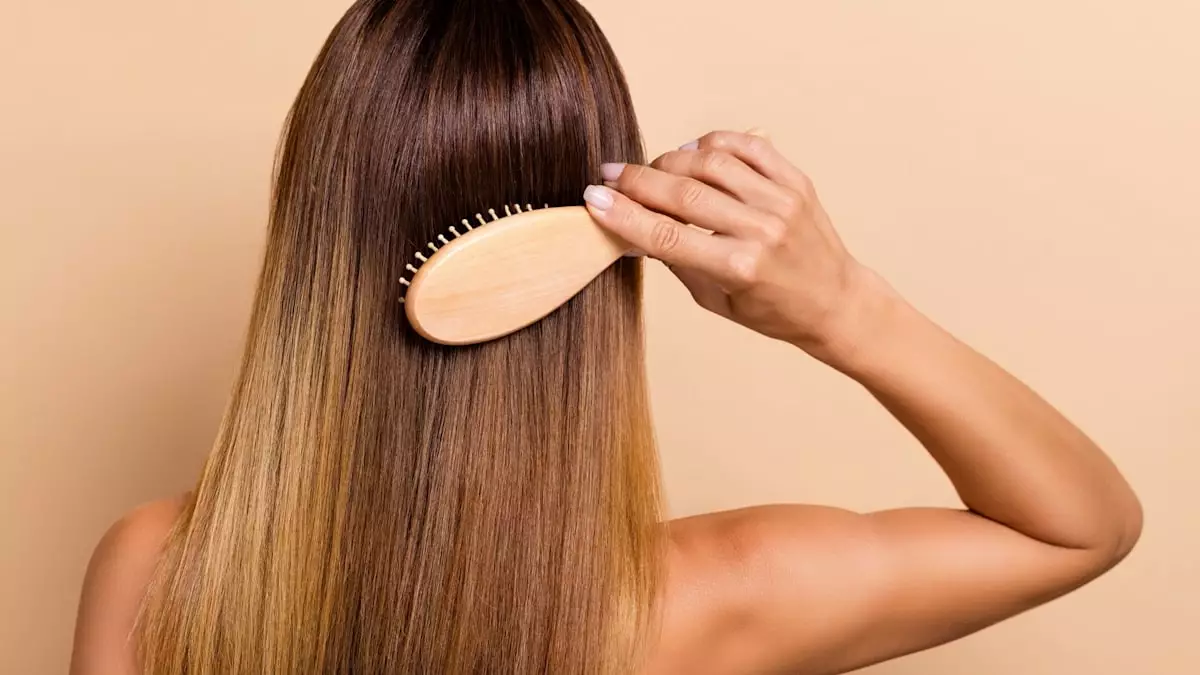Hair loss during menopause is a common symptom that many women find distressing. It is important to understand the root causes of this sudden change in order to effectively manage hair thinning or loss. Dr. Sophie Shotter, an expert in hormone health, shares valuable tips for tackling hair loss during menopause.
Dr. Sophie emphasises the significance of hormone testing for getting an accurate insight into what is happening in your body. Hormone imbalances, particularly oestrogen deficiency and possible androgen dominance, can contribute to hair loss. Additionally, thyroid hormone levels should also be checked as they play a crucial role in hair thinning.
Addressing Nutrient Deficiencies
Deficiencies in key nutrients such as Vitamin B12, Vitamin D, and iron can be linked to hair loss. It is essential to address any imbalances in these substances to support healthy hair growth. Without the right nutrients, interventions for hair loss may not be effective in promoting a fuller head of hair.
Managing Stress Levels
High stress levels can worsen hormonal imbalances and increase hair loss. Dr. Sophie recommends incorporating stress-reducing activities like yoga or meditation into your daily routine. Stress reduction can have a positive impact on hair health, so finding activities that you enjoy and can consistently practice is key.
Exercise not only benefits muscle strength, bone health, and mental well-being during menopause, but it also boosts circulation in the skin, including the scalp. Optimal levels of micronutrients and oxygen in the scalp can promote healthy hair growth. Regular physical activity is essential for overall health and can contribute to improved hair health.
The Importance of a Balanced Diet
Eating a balanced diet rich in plants, healthy fats, and proteins provides the necessary building blocks for healthy hair growth. Supplementing with nutrients like B6 and folic acid can support hair growth. Dr. Shotter recommends Viviscal Professional, which contains Biotin and a marine extract with proven efficacy for promoting hair growth.
Preventing Hair Damage
Overuse of heat tools, particularly hair straighteners, can lead to hair damage and breakage. Dr. Sophie advises minimizing heat exposure and investing in high-quality hair tools that cause less damage. Avoid vigorous towel drying and use gentle techniques to minimize hair snapping. Using products like Pureology’s Heat Protection Spray can help protect hair from heat damage.
Nourishing and Protecting Your Hair
Dr. Sophie recommends using products like K18, which infuses protein into the hair shaft to improve hair health and nourishment. By taking care of your hair and using protective products, you can support healthy hair growth and minimize damage.
Managing hair loss during menopause requires a holistic approach that addresses underlying causes, promotes hair health through nutrition, exercise, stress management, and proper hair care techniques. By following these effective strategies, women can take control of their hair health during this transitional phase of life.

